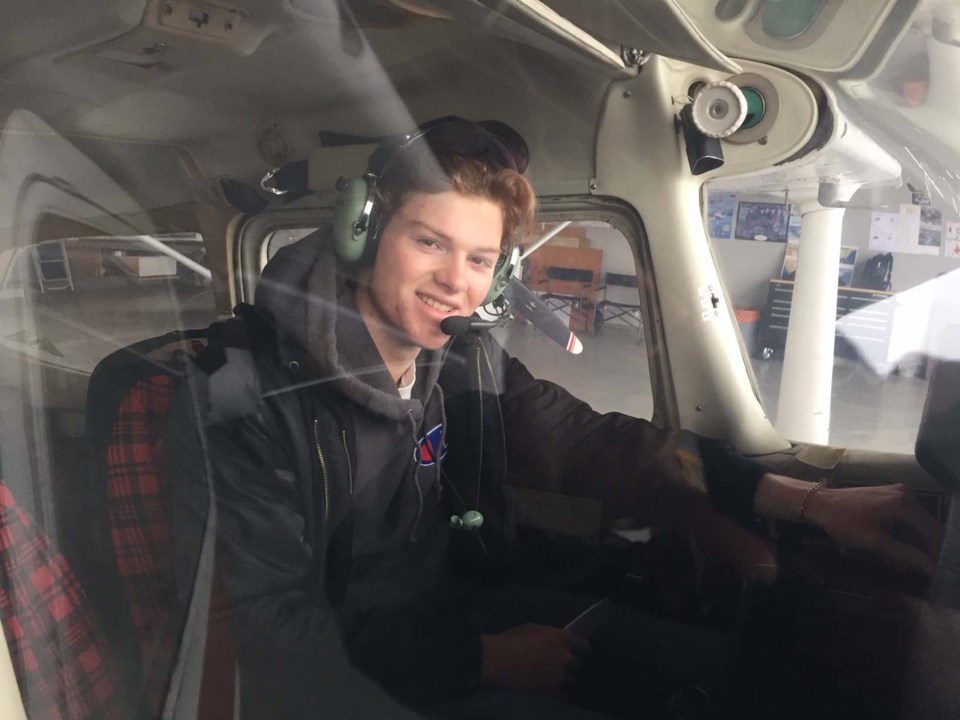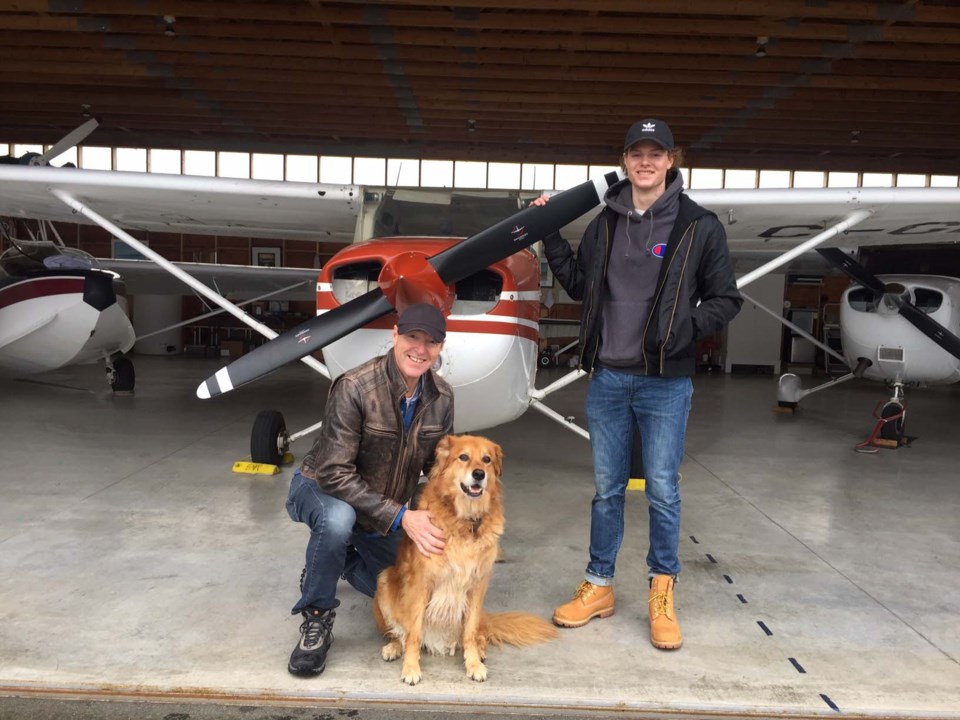Ever since he could walk, Chris Gillies has been in the cockpit with his commercial pilot dad, Bill.
And before he’d even graduated from elementary school, Chris was behind the controls in the air, being shown how to take off and land small aircraft.
So when the now 19-year-old McMath secondary grad received the shock of being diagnosed with Type-1 diabetes almost two years ago, his dreams of following in his father’s footsteps were over.
That was the case, until two months ago, when Transport Canada changed the legislation which previously prevented Type-1 diabetics from gaining a commercial flying licence.
Now, after being one of the first in the province to pass the new medical examinations for candidates in his position, Chris’ dream of becoming a commercial pilot is very much back on.
“Ever since I was a little kid, I’ve wanted to fly, as far back as I can remember,” Chris told the Richmond News.
“And when I got out of high school two years ago, I pretty much realized that’s what I wanted to do.
“(The diagnosis) was completely out of the blue. I felt really sick and was incredibly thirsty; nothing would take away the thirst.”

Chris, who lives with his parents in Steveston, said he didn’t think too much initially about the loss of his dream career, focussing instead on coping with his newfound health problem.
“I could still get a recreational licence, but not a commercial one with my diagnosis. I remember thinking ‘that sucks.’”
Just a couple of months ago, however, Chris, who works at YVR as a ramp agent, found out via his dad that Transport Canada were in the process of changing the rules, which would allow people with pre-existing Type-1 diabetes to apply for a commercial licence.
“It was very exciting. I realized I could possibly have the career I wanted,” said Chris, who hopes to gain his recreational licence in the summer.
Bill said he was also more concerned about Chris’ health than the loss of his potential flying career.
“But I was disappointed for him,” said Bill, whose wife and Chris’ mom is also in the airline industry.
“So to have this door open for him through Transport Canada means the world. We only heard because I was talking to a Transport Canada doctor in Ottawa, who handles all of the diabetic pilots in Canada.
“He told me they were changing the legislation. Technology has changed so much that they can monitor your blood sugar levels much better. He would be restricted to flying, commercially, with another pilot.
“Canada has been at the forefront of diabetic research around the world and has become the first country to allow diabetics to get a commercial license. If you were already a pilot, before getting diagnoses, you could be grandfathered in.”
Once his recreational licence is in the bag, Chris will set his sights on the commercial version, but will need to clock up around 150 hours flying time first.
“What we’re going to do this summer is fly across Canada (in our four-seater Cessna 172) to build up his experience to log the hours,” said Bill, who’s been flying for 43 years and currently works for Sunwing.
“It’s about 30 hours one way, with about 10 re-fueling stops, of course. I’m from Fredericton, NB originally. My dad passed away two months ago and we’re going to fly his ashes home.
“And we’re hoping to make some stops along the way to showcase the fact that people with Type-1 diabetes can have a commercial flying career.”
Asked what kind of commercial flying job he fancies the most, Chris, much his like his father, wants to jet in and out of sunshine destinations.
“I want to work for Sunwing and fly to beach resorts, I like the sound of that. I like the sound of fire-bombing as well,” he added.



